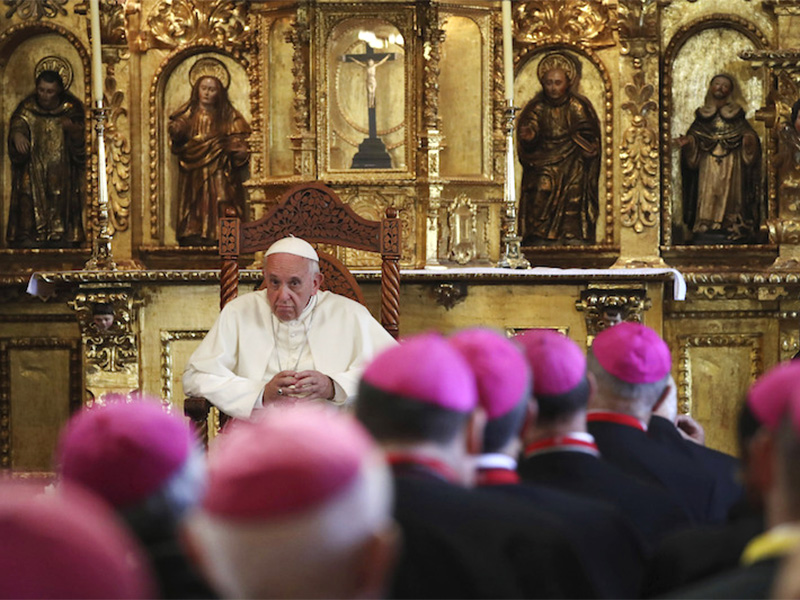VATICAN CITY (AP) — The #MeToo movement and the controversy over a Chilean bishop show the need for a broader response to “the abuse of power and conscience,” the head of the Catholic Church’s leading center on preventing priestly sexual abuse said.
The Rev. Hans Zollner spoke Friday (Feb. 9) at the graduation ceremony for students who have completed a course at the Jesuit-run Pontifical Gregorian University in safeguarding people from abuse.
In addition to his role at the Gregorian, Zollner is one of the founding members of the Pontifical Commission for the Protection of Minors, Pope Francis’ hand-picked group of experts on sexual abuse.
Francis’ strong defense of Chilean Bishop Juan Barros has sparked outrage recently, compounded by revelations by The Associated Press that the pope received a hand-delivered letter from an abuse victim in 2015 saying that Barros had witnessed the victim’s abuse and denied anything had happened.
The Vatican’s sex crimes investigator is planning to interview the victim next week after Francis said he had never heard from any victims.
Zollner referred to the Barros scandal in his congratulation speech to the graduates, saying the #MeToo revelations “as well as the recent controversy surrounding Bishop Barros in Chile have shown that the area of sexual abuse of minors and the abuse of power and conscience still require greater understanding and a broader range of responses.”
He said the graduates would be able to help the church find those responses in the coming years. The Gregorian’s Center for Child Protection is the church’s leading safeguarding institute. In October it will begin offering a two-year, multidisciplinary licensing program that will enable graduates to teach safeguarding in Catholic seminaries and universities around the world.
Speaking to journalists afterward, Zollner said the Gregorian’s approach “begins from the experience of victims” and makes sure they are heard.
“Only someone who has listened to a victim can truly understand the implications and the need to listen with the heart, not just what the law requires,” he said.





